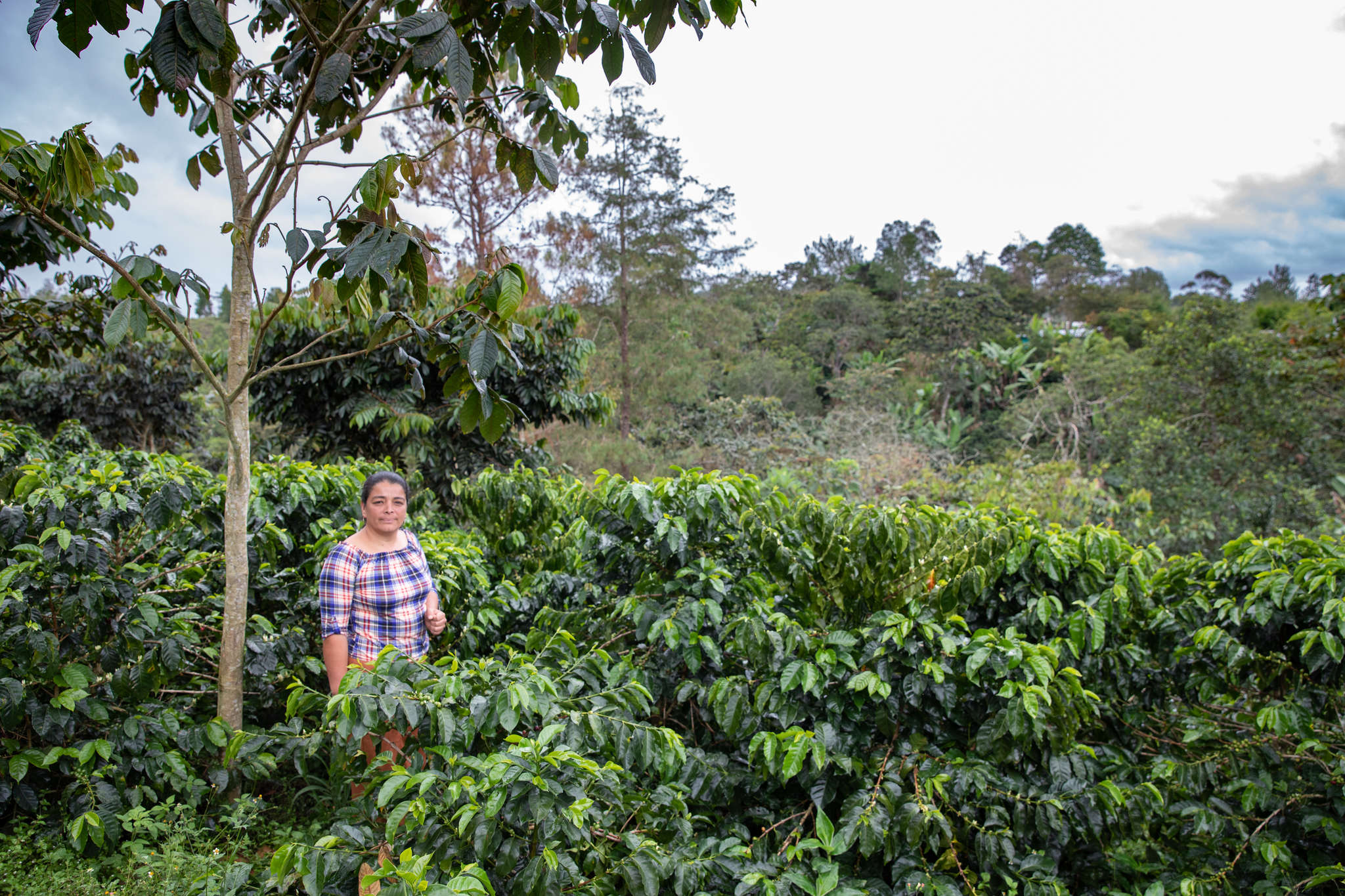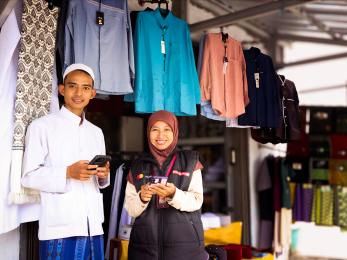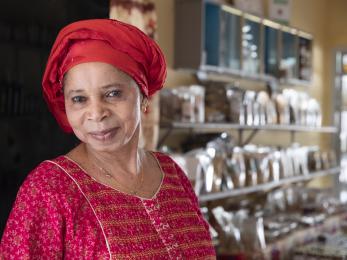Lida, the bee rescuer

At age 60, living and working in nature is nothing new for Lida Esperanza Camayo. For years she had worked at nearby farms and plantations growing eucalyptus trees, pines, and coffee. The labour of tree-planting was physically demanding and grew more difficult for Lida over time.
As a fellow member of her neighbourhood association, her friend Fabian told her about Mercy Corps’ “Something New” programme: Mercy Corps provides climate-smart, locally led, inclusive training for people who are interested in entrepreneurial agricultural opportunities—such as beekeeping.
Beekeeping was a totally new idea for Lida, and it made her reconsider her relationship to bees. She explains, “...Before the project we actually fumigated the bees. We were afraid of them and thought they would hurt us. We were interested in the honey, but that’s it.”
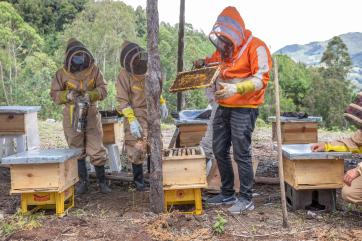
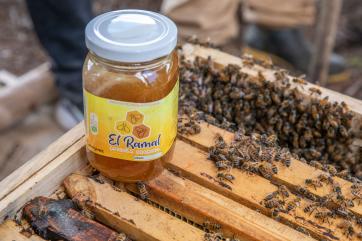
Lida joined the Mercy Corps programme and began to learn about honey production and cultivation, as well as business basics and marketing skills. Perhaps most importantly, Lida learned about how bees play a crucial role in protecting the ecosystem in the face of climate change, and how her neighbouring farmers and gardeners benefit from a healthy bee population.
After participating in the programme, Lida feels completely different about bees. She says, “Now it’s the contrary, we take care of (the bees), we teach others about them, we rescue them, others will call us to rescue them.”

Today, Lida is part of the Oro de Miel group of beekeepers with 12 other people in her neighbourhood. She considers beekeeping an “act of love,” and is grateful to have options beyond working at the tree plantation.
Lida says that their workshop teacher gave participants the task of planting a garden, because bees need flowers. Lida is proud of her gorgeous garden filled with a diverse array of flowers, and says the bees are always visiting.
It’s thanks to them that we have good crops, they are the ones that pollinate.
LIDA ESPERANZA CAMAYO, BEEKEEPER
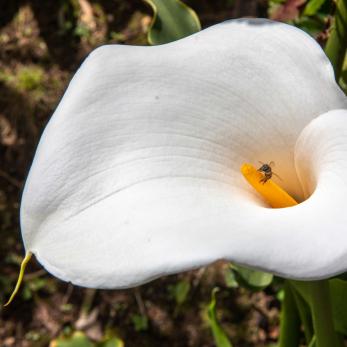
Lida’s honey business is thriving, with orders coming in via WhatsApp on her mobile phone. When asked what she wishes people knew about beekeeping, Lida says, “We have to take good care of them and raise awareness of their importance. We have to take care of them and not destroy them, because they’re good for our crops and our community, they can give us an income.”

Mercy Corps’ “Something New” programme in Colombia has reached 3,400 families and supports farmers to successfully grow coffee and other crops, plus beekeeping, arts and crafts, and other entrepreneurial projects. The programme also provides people with an opportunity to replace income from planting illicit crops, while improving productivity, quality, and sales channels for safer, legal income sources. This programme addresses three of Mercy Corps priority outcome areas, including: Economic Opportunities, Food Security, and Peace and Good Governance.
